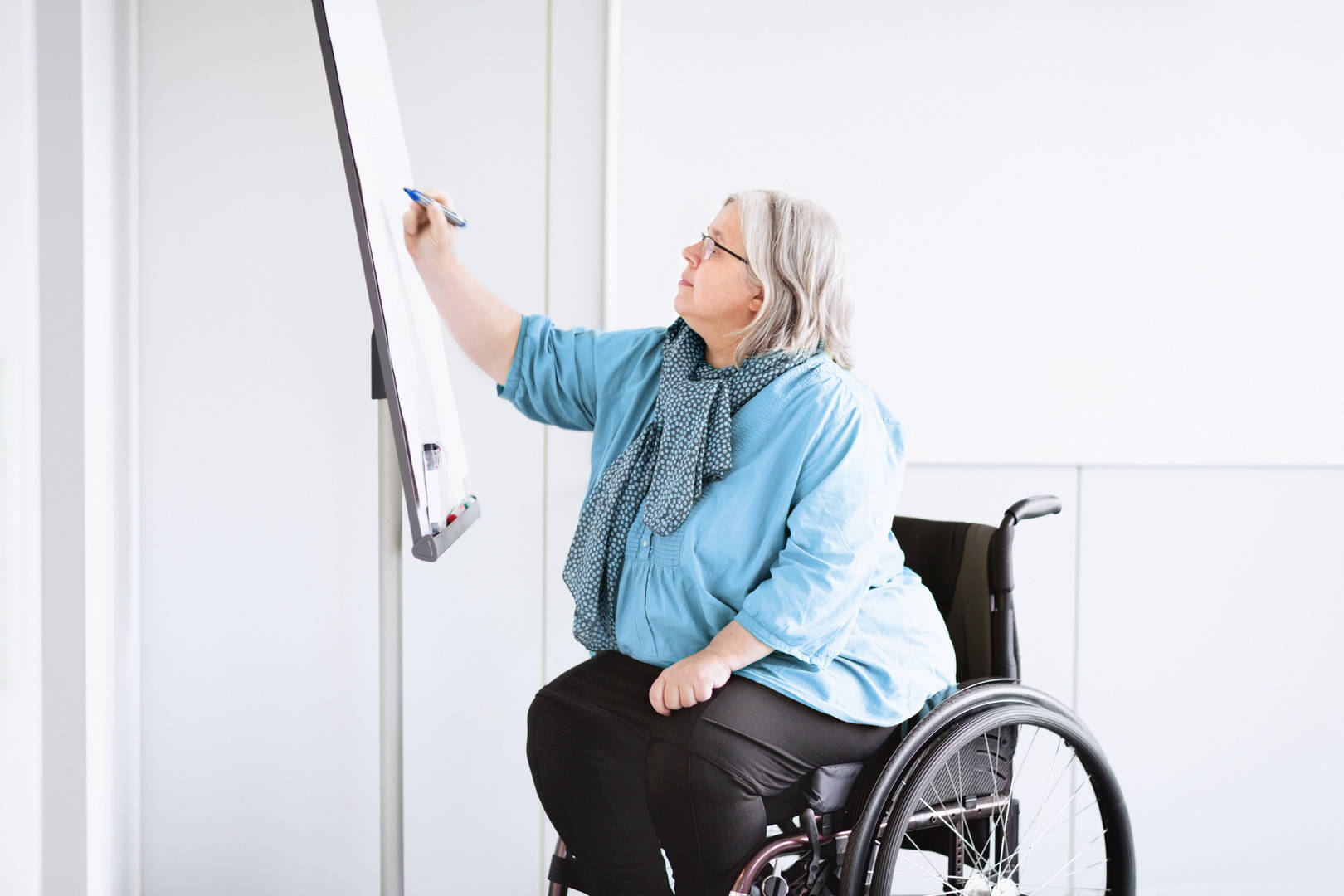Empower your people and brand with biopharma learning solutions
By AmerisourceBergen


Learning solutions may sometimes be an afterthought in biopharma. When training is developed for customer-facing biopharma employees it's often not a primary consideration when developing a comprehensive commercialization strategy. Nor is training developed for the needs of the individual learners in mind, with a focus on content design and delivery. Instead, it is created with a one-size-fits- all approach.

Such disconnects between what employees who work in field reimbursement; account management; medical science liaisons; sales leadership; specialty sales; and health economic outcomes research field teams need to succeed and what standard learning solutions offer can undermine a biopharma company's ability to optimize performance. To be successful in today’s market, pharmaceutical companies need to go beyond the clinical and focus on the patient experience, which includes gaining access to the medication.
In high-performing organizations, a comprehensive training curriculum is an integral part of the overall commercialization strategy and a fundamental component of success. Such organizations have a “culture of learning" across the enterprise, which both recognizes the critical nature of preparing customer facing associates to execute on tactics, and value of training to achieve employees’ desire for professional development and the business need for retention.
Yet other companies struggle to create an environment of on-going development. A survey conducted by Towards Maturity showed almost 80 percent of pharmaceutical and life sciences organizations struggle to problem solve with capability building.1 An ongoing challenge is how to retain talent and close hard and soft skills gaps.
The need for data-informed learning and development
Biopharma companies have an opportunity to better-define learning solutions curriculums that use data and analytics to uncover gaps in competencies and offer content in multiple formats designed for the unique needs of adult learners.
“When we think about manufacturers every element of the business is rightly based on data and evidence. Why would they operate this portion of the business (training) any differently?" asks Patrick Bulger, Associate Director, Training, AmerisourceBergen.
Across all industries, many learning and development stakeholders do not use data analytics to its fullest potential and do not report learning and development benchmarks to the wider business. Yet according to Towards Maturity, companies who used analytics to improve their learning services saw a 26 percent increase in productivity.1
One critical function of a data-informed learning solutions program is measuring learning. Connected to this is the ability to collect and use the data compiled in sessions. Under the standard way of thinking, biopharma companies collected data around whether learners found training relevant, engaging, and useful. Yet, changes in behavior that yield results for the business are the most important key performance indicators (KPIs).
Turn to a trusted partner
For some biopharma companies, especially emerging ones whose staff is already stretched thin, conducting a needs analysis on top of executing learning and development programs, can be a tall ask. That's where a learning solutions provider can step in.
A partner with expertise in complex commercialization content can guide biopharma companies in their learning and development. With new, specialty, products, for example, training fits into the pre-launch or launch phase when customer facing teams must get up-to-speed on the product, the therapeutic area, and the market access challenges. Traditionally, biopharma companies think about training their sales teams, and focus less on the matrix teams that are critical to success. Understanding the significance of market access related teams, do they also give adequate training to medical science liaison, field reimbursement manager, account manager, and HUB services teams?
Working with a learning solutions provider offers access to subject matter experts who understand the specific criteria payer decision-makers use to determine product reimbursement and/or formulary placement. Such experts can prepare associates in customer-facing roles to present essential clinical and economic data to payers.
"What really differentiates is our ability to leverage subject matter expertise to develop a data-driven training curriculum."
“It's often forgotten that, in those early phases of commercialization, the biopharma companies, together with their commercialization partners, are developing economic models and tools, they're developing pre-approval information exchange (PIE), and healthcare economic information (HCEI) content. And those are all areas of expertise we've designed and delivered effective training for," says Bryan Horveath, Vice President, Sales Effectiveness and Learning Solutions, AmerisourceBergen.
“What really differentiates us, is our depth of health economic, market access and reimbursement subject matter expertise, and our learning teams’ ability to leverage that subject matter expertise to develop a data-driven training curriculum," adds Bulger.
A commercialization team must collaborate with patients, providers, and advocacy groups, each with its own value drivers. Learning solutions experts who know the value of strong working relationships and can instruct on how to grow “soft skills," like change management and executive presence, are invaluable. Successful learning solutions will balance these skills with education on how to successfully execute payer-related strategies. Examples of such tactical learnings could include buy and bill; reimbursement fundamentals; specialty pharmacy; and more.
Engage with learners on their terms
A learning solutions provider should offer varied formats to capture the attention of customer-facing team members with different learning styles—visual, auditory, read/write, and kinesthetic—and increase comprehension of both clinical and non-clinical content. For adult learners, gamification plus repetition equals retention. An online game, where learners can practice interactions with provider offices and test their knowledge of common access and reimbursement scenarios in a friendly competition is one example of a learning solutions that uses gamification and collaboration to deliver and apply knowledge.
A more self-directed example is a mobile micro learning platform where users answer questions and get immediate feedback, with a leaderboard to see how they performed versus colleagues. A two-minute investment per day leads to strong retention of critical concepts.
Research has shown that the ideal learning delivery for dense materials is 70 percent on-the-job, 20 percent collaboration, and 10 percent in classrooms, either in-person or online.2 Consider a training journey with a live workshop followed by a participatory Q&A session focusing on key areas.
Leaders should be observing their teams’ performance to see if they're applying new skills, procedures, or thought processes and coaching and reinforcing throughout. “Learning is a continuum, whereas training can sometimes be a one-time event," says Bulger.
An investment in learning solutions is more than an investment in your product. It's a signal that your biopharma company cares about its people, not just its profits.
References
1. Transforming learning in the pharma and life sciences industry. Towards Maturity. 2019. Accessed 2 Feb 2023. Available at: https://acrobat.adobe.com/link/track?uri=urn:aaid:scds:US:5bd98cb3-5440-355b-9f5b-c48cbae02df4
2. Graham, R. Learning and development is the key to compliance in life sciences. PharmExec.com. 29 June 2022. Accessed 2 Feb 2023. Available at: https://www.pharmexec.com/view/learning-and-development-is-the-key-to-compliance-in-life-sciences




